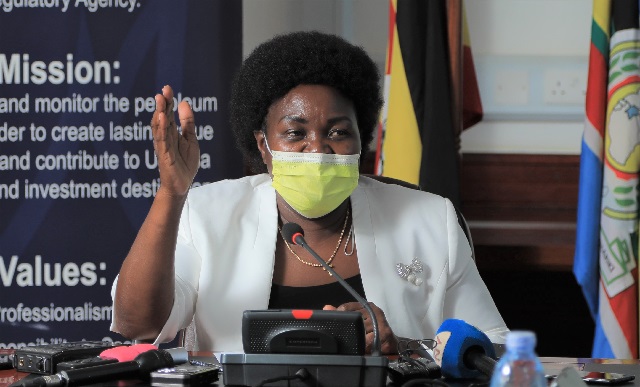
Kampala, Uganda | THE INDEPENDENT | The Ministry of Energy and Mineral Development has embarked on lobbying legislators to expedite the debate and passing of the proposed Minerals and Mining (Amendment) Bill, 2021.
Introduced in 2019, the Bill though facing delays, seeks to give effect article 244 of the Constitution to repeal the outdated Mining Act, 2003 and reform the country’s law relating to the sub-sector.
Vincent Kedi, the Acting Commissioner Mines in the Directorate of Geological Survey and Mines says the Bill strives to establish the Mineral Protection Force to safeguard minerals against exploitation.
The Bill provides for state equity participation in large, medium and small scale mining up to a maximum of 15%. The Bill also prescribed stringent penalty of 1 billion shillings and custodial sentences of up to seven years for those found guilty of illegal mining.
The Bill is also proposing the acquisition of licenses for building materials such as sand, murram, aggregate and clay which is exploited for commercial purposes, though Article 244 of the Constitution does not regard building substances as minerals.
The Bill seeks to provide for the administrative and institutional changes in governing the minerals, bridge legal gaps, promote transparency of mining operations, and transform the artisanal mining in Uganda.
While Uganda is endowed with various mineral deposits, if passed into law, any person who will be seeking to explore or mine or dispose of any building substance for commercial purposes shall be required to possess a quarry license.
On 7 December 2021, Peter Lokeris, the Minister of State for Energy led officials from the Ministry and introduced the Bill to Parliament’s Committee of Environment and Natural Resources for scrutiny. The Minister disclosed that the Ministry is lobbying the lawmakers to expedite the amendments when plenary resumes because several private mineral license holders are not performing to capacity as required.
Sidronus Okaasai Opolot, one of the Energy State Ministers who is also the Kumi County MP, notes that despite the Mining Act vesting ownership, control and acquisition of mineral rights on government, the absence of proper mining law continues to affect the industry.
Meanwhile, Ruth Nankabirwa, the Minister of Energy and Mineral Development says key officials of the ministry are undergoing an induction to acquaint themselves with the necessary knowledge about the Bill to enable them fast track and defend it.
In the financial year 2016/17, the ministry registered 14,226 miners and 172 Artisanal Small Scale Miners-ASM groups. More 2,808 miners were registered in the following FY 2017/18 and by the end of the first half of FY 2018/19, at least 11ASM groups had been registered.
The Ministry of Finance, Planning and Economic Development statistics reveal that the contribution of minerals to Gross Domestic Product (GDP) growth increased from 0.3% in FY 2012/13 to 0.6% in FY2017/18, which has also seen the value of mineral production increase from 159.3 billion in 2013 to 179.7 billion in 2017.
Over the years, over 35 mineral deposits such as Uranium, Gold, Iron ore, Limestone, Marble, Copper, Glass Sands, Uranium, Platinum and Cobalt among others have been discovered in the areas of Masaka, West Nile, Iganga, Mayuge, Hoima, Kaliro, Kabale, Mubende, Busia, Karamoja, Buhweju, Rukungiri, Kitgum and Kisoro.
*****
URN
 The Independent Uganda: You get the Truth we Pay the Price
The Independent Uganda: You get the Truth we Pay the Price



